- Home
- Ella James
Covet : A Standalone Forbidden Romance Page 11
Covet : A Standalone Forbidden Romance Read online
Page 11
I lift my brows at him, giving him the scolding look that’s usually reserved for Mr. Braun, who likes to skip his diabetes medication.
Declan smiles like the Cheshire Cat.
“Your hair is all…” I wave my hand about my head.
He runs a palm back over his dark locks, and as he does, he makes another brows-scrunched face at me. “Question for you, Siren.”
“Yes?” I realize after I say “yes” that I just answered to that silly nickname.
“Do I smell? Every time I get close, you hold your breath.”
I purse my lips, and he shakes his head. “Damn.”
“No.” I sigh, feeling my cheeks warm. “It isn’t that. It’s that I can’t find toothpaste. Usually I have some in my pack, but I could only locate the toothbrush…”
He reaches into his pocket—I note the mud stains on his khakis, which badly need a wash now—and then holds his hand out.
“Check it.”
I frown at the square packet in his hand.
“Gum.”
I take it, squinting at the unfamiliar label. “Eclipse.”
“That work?”
“I’m not sure.” I turn the package over and his hand comes over mine.
“Here…” He pulls out a sleeve from inside.
“I knew that,” I say softly, even though I didn’t. “I’ve seen one of these before. A tourist left the garbage.”
He pops a wee, white square out of the sleeve and holds it out. “A token from a tourist.”
I accept the thing, a bit bigger than a communion wafer, and set it in my mouth. He watches with his brows up as I bite—and nearly cry out. The flavor is so intense, it’s almost violent.
I open my mouth to let some of the minty air out, and I find him smiling with a curious tilt. “Tell me you’ve had gum before, Siren.”
“Of course. It’s just…we get the Doublemint.”
“That’s what my old man swears by.”
“This, though.” I laugh. “This is…it’s like mouthwash!”
He laughs, shaking his head. “I think it’s time for some questions.” He reaches for the hammer. “It’ll make the work go faster.”
“Questions? Of what sort?”
He looks over his shoulder at me. “Let’s start with the gum. Are you telling me you’ve never had any gum except for Doublemint, or just that it’s been mostly Doublemint?”
I scrunch my nose at him before scooping up my own stone. “How many sorts of gum have you had, Mr. Fortunate Sports Star?”
That gets another low laugh. “Sports star.”
“When the shoe fits…”
His hammer slams into the rock. “I’m not sure that shoe fits.”
I look down at his boots-clad feet. “I’m quite sure it’s just your size.”
“There are a bunch of different kinds of gum. In every country,” he says as he assaults the wall.
“I assume you’ve been to all of them?” I tease.
“Not by a long shot.”
“How many? Tell me, do you know how many there are total?”
His eyes meet mine over his shoulder. “Hundred and fifty?”
I shake my head, bashing my stone into the cave’s wall. “Try one hundred ninety-five.”
He gives a low whistle. We hit the wall at the same moment, sending shards of rock all which ways. He says, “I’ve been to thirty-one of them.”
I shake my head at his back. Thirty-one countries. What must that be like—to have traveled so much? “Someone like you…” His family’s funds must be near unlimited. He’s been to university, began a career. Perhaps he’s being groomed to take over his family’s business in the longer run, and that’s what’s behind his visit to us.
“If you could go anywhere?” he prompts, cutting in on my thoughts.
I lick my lips as my heart beats more quickly. “I don’t know.” My tight throat makes my voice sound strange. “Perhaps to Oregon. Or California.”
“Yeah?”
I get a good chunk of rock as I slam my stone into the rim again, and he says, “Nice one.”
“Thank you. And I’m not sure…” I worry a bit, having revealed my real answer. I’ve long kept it secret—where I’d go if I were to flee—but I doubt the Carnegie would remember anyway, nor be consulted were I to go missing, so I carry on. “Perhaps I’d hate both places. But I’ve heard of redwoods. I’ve heard they’re massive, and I’ve never seen a terribly tall tree. And California being sunny, with all the oranges and avocados, and the movie stars. San Francisco with the sailboats. I would like to see the beach in California. I’ve heard the sand is soft and warm, and people swim there in the ocean.”
He turns to face me, his lips pressed together and his head angled as if he’s puzzled. “You don’t swim here?”
“Nearly never.”
“No good beach?”
I shrug. “There are tiny spots of beach. The current’s strong, though, and the sand is rocky. No one ever thinks to lounge about there. For the children, it’s forbidden. Also, it’s quite cloudy.” It’s almost always cloudy here.
“What’s that like?” he asks, giving me his back again as he turns away.
“Wait a bit—you’ll find out.” I consider what he said, though. He’s correct: chatting will help pass the time. “I don’t think I can answer,” I offer. “I’ve never been anywhere but here, and rain is part of life. It helps the crops grow.”
Silence settles in around us, and we work as we have for the past however long it’s been. I notice he’s not hammering as quickly as he was in hours prior, but neither am I.
He starts humming, and I wonder at the tune until I hear his low voice. “What show?”
I look up to find him glancing at me over his shoulder.
“Come again?”
His face is fiercely handsome as he smiles before swinging the hammer. “What show is that song from?”
“I rarely watch the telly.”
“Mm, so you don’t know?” He flashes a smirk my way. “Ever heard of a show that rhymes with The Shady Hunch?”
I snicker. “What?”
He turns to me, dark brows arched skeptically. “The Brady Bunch?” He gives a low whistle. “You’ve never watched The Brady Bunch?”
“I’ve heard of it.”
“Marsha, Marsha, Marsha,” he says in a falsetto, and I shake my head.
Declan chuckles. “You’re a tabula rasa, Siren.”
“I know what that is. I do know my Locke.”
“And I thought I was isolated growing up at a Swiss boarding school.”
“You went to Swiss school?”
I watch his nape as he nods. His tricep flexes as he swings the hammer.
“Where was it located?”
“Near Geneva.”
“Do you speak French, then?”
“I do.”
“Parlez-vous aussi Italien et Allemand?”
He turns around to smirk at me. “Oui, oui. Et vous parlez Francais.”
“Yes, I had several years of French, and for a year we had a tutor. I do believe you paid for it.”
He shakes his head. “I didn’t pay for it. I didn’t even know we still brought stuff out to the island—” he falters, his gaze veering away from mine for just a moment— “until my cousin told me.”
“Why Tristan?” I know the answer, of course, but I’m testing him to see if he does.
My heart pounds as he says, “My father came here as a young guy. Says he never forgot it.”
The ache in my chest breaks like a wave, and pain drips through me. I remember Mummy as we walked to the post office. I remember how her face went dreamy when she thought no one was looking. I remember putting my hand to hers—to her hand that held the letter.
“What’s that word mean, Mummy?”
“Which one, darling?”
I frowned, trying to remember what it looked like on paper. “Yearning.”
She stopped and glanced around, and seeing no
one, leaned in closer, speaking softly. “Dearest, did you read my letter?”
“Just the one bit. What does it mean?”
Her face softens, and I can see her thinking—trying to decide whether to tell me. “Yearning is when you want something, my darling…especially something you can’t have.”
“So, when you want something forbidden?”
“Yes, my dearest. It’s a bit like forbidden.”
Thirteen
Finley
When I was fifteen, someone phoned Gammy. I suppose the call must have come when I was lingering about, so she waited and returned it when I was at the summer dance.
I couldn’t dance that afternoon, though—I remembered too well father twirling Mummy in our living room—the calm before the storm—so I picked up the end of my dress and walked slowly home—not to Gammy’s house, but to my other home. The one that still sits empty by the cliffs.
And there I wrote my name in dust, and there I found the letters.
Dearest Hudson…
To My Darling Isla…
If they had a girl child, they would name her Finley. He thought it whimsical; she would be a sort of lovely mermaid. If the firstborn were a boy, he would be Declan—a family name in the Carnegie line.
Mummy called him Hudson because his favorite of his family’s homes was there—a castle, he said, on the verdant bank beside the river. He’d told her he’d never cared for Charles, his given name; it was a hand-me-down from his father, who sent him to a place called Le Carogue.
He had refused a planned marriage since he’d arrived back in New York, he told her in one of the first letters. When could he come back and get her? He would make his father understand…
Mum refused to go without her mum. Hudson said he would send for Gammy, too, and buy her closetsful of gowns and a home of her own, with stacks of fine china and a mountain of silver.
Mummy wasn’t sure that she could manage in America, even alongside him. He wrote her, “Here I am a king—and you would be my queen. There is nothing I can’t give you, dearest.”
He was wrong. He couldn’t give my mother strength.
She didn’t go. She urged him to marry as he’d planned, a better wife than she could hope to be, and in an effort to propel him toward that end, she let herself be married to Peter Evans, the last of the island’s capable, unmarried males—a quiet, slightly younger boy who’d brought her a flower when her father died at sea.
When she told Hudson what she’d done, his letters halted for five months, and when at last he wrote again, he raged and railed. Henceforth, he wrote daily, begging her to annul the marriage if some unknown-to-me bit of information she’d conveyed to him in a previous letter was indeed true.
Finally, after a few months of such letters, one read simply, “Please take great care. If you would deliver in Cape Town, I could help with transport. For all three of you. Anything. I am always yours, Isla. Always, insensibly always…”
Another year, another creased, time-stained letter: “I developed the film, love. She is nothing short of magic.” And on another line, one halfway down the page, “I did it. I can’t say much for fear of breaking my own heart. Soon she’ll be with child. If a son, Declan. If a daughter, my Isla.”
I found the last letter hanging from the mouth of a wine bottle, having previously been tightly rolled.
My father likely found it shortly before my seventh birthday.
“I pray you’re on your way here. He’s gone mad! Finley & I must escape. There’s no time for further correspondence. Hear me through the stars. I’m always yours, and you are always mine. Remember Rumi?”
And there was a poem there at the bottom, something heady and enchanting.
I took that letter with me, a cylinder I folded into an accordion and pressed against my palm, and at the moment I stepped back into Gammy’s cottage, she was on the telephone, telling someone, “I understand—but she can’t go. Finley is not a simple girl, but she is broken. She has never spoken since it happened. No, it’s not. In Switzerland?” My Gammy laughed. “See if they will learn to read her mind, as I have, Charles. In the meantime, send her tutors.”
I waited, still, until the call ended, and longer before making a sound. Gammy turned to me and smiled as if I wasn’t mute, as if she’d merely been baking a pie. And from that day onward, I imagined Charles. Years later, I looked him up on the new Macintosh at the café, gotten, as were all our things of value, by a grant from the Carnegie Foundation.
I found a newspaper image of his wedding, and inside me, something swung open—a sort of locked door. Charles had a son, I found, and he had indeed named the boy Declan. I saw him as a young teen pictured on a sailboat—lovely eyes, a luscious mouth, and wild, dark hair befitting of a prince. Sadness blossomed like a flower in my heart.
That night at the dinner table, when I set my napkin down beside my empty plate, I opened my mouth, and I told Gammy I’d enjoyed the meal. Each night after, I lay on my back in the field under the cliffs where Vloeiende Trane flowed, and I whispered to the stars the poem Mummy had scrawled. Those final words she thought to send to sea.
Out beyond ideas of wrongdoing and rightdoing,
there is a field. I’ll meet you there.
when the soul lies down in that grass,
the world is too full to talk about.
I didn’t know until I met Doctor, who had been to university, that the poem was longer. Longer than, by then, I cared to memorize—although I did learn some of it.
Out beyond ideas of wrongdoing and rightdoing,
there is a field. I’ll meet you there.
when the soul lies down in that grass,
the world is too full to talk about.
Ideas, language, even the phrase “each other”
doesn’t make any sense.
The breeze at dawn has secrets to tell you.
Don’t go back to sleep.
You must ask for what you really want.
Don’t go back to sleep.
People are going back and forth across the doorsill
where the two worlds touch.
The door is round and open.
Don’t go back to sleep.
It comes to my mind now because I think he is asleep—Declan. The prince who’s not a prince. The man who, in some backward-bent world, might have been my brother, were that Mummy had been braver. Were that Charles and his son arrived the day before my seventh birthday, as, years later, I found they were scheduled to.
I watch him lying on his side now, having first eaten part of a bar and drank some water, and I wonder what he knows of me. What he remembers from his last trip here. What had his father told him as they traveled? Had they really planned to take us? How would they have spirited us away? Here on Tristan, if a married person wishes to leave the island, it requires spousal consent.
Here I am a king—and you would be my queen.
His voice cuts into my thoughts, saying a word I don’t understand at first: “Nike?”
“Come again?” I tuck the hammer to my chest and step a bit closer to him.
He doesn’t move from where he’s lying, but he says, “You heard of Nike?”
“Oh—the shoes. Of course.”
Just as I’m turning back toward the cave’s mouth, he says, “George W. Bush?”
A small smile curves my mouth. “If you’re tired, you should sleep.”
“Is that a no, Siren?”
“I know history and politics. In fact, I believe he’s number forty-three.”
“What’s a Macbook?” he asks from behind the hand rubbing his temples.
“Macintosh,” I murmur. Macbook. “Is it a computer?”
In the lantern light, I see his small smile. “Martha Stewart.”
“The cookbook?”
“Yeah.” His voice is low and quiet.
“Tired, Sailor?”
He shakes his head. “Shoulder needed a quick break.”
“You’re younger than me.
One would think you would be able to keep up.”
His brows crease as his shrewd eyes narrow, and my tummy backflips. “How do you know that, pray tell?”
I can’t help giggling. Because I’ve no sense of decorum. Because I’m plebian and inexperienced and tired. Because I’m oh so tired. He looks up at me, and I put on my poker face.
“Everyone here knows your age, Carnegie. The island was obsessed long before you arrived.”
“And now?” His mouth twists on one side.
“Now we’ve got you buried in a burrow. I’d say your stock has plummeted dramatically.”
That earns me a soft chuckle.
I spend a moment looking at his face. From several meters away, in the gentle amber of the lantern light, his dark brows, wide cheekbones, and princely lips stand out the most. I run my gaze down his lovely form and then back up, and I wonder what his loved ones would think if they knew where he was tonight. What sort of people love him? Likely many…
“I suppose you’re not so awful.” The quiet words are blurted, but I can see them reach his ears. His mouth opens, and he gives a chuckle. “It’s true,” I continue. “I’d have never given you a chance prior to this…entrapment. But perhaps I do believe you weren’t yourself that night.”
He pushes up off the floor and gets to his feet, surprising me anew with his height as he strides toward me. He stops beside me, and for a breathless moment, I can feel his gaze caressing me despite my own eyes clinging to my feet. “Glad you’re seeing reason now.”
I hear the grin in his voice. I don’t dare peek at his face until he bends to scoop my rock off the floor. His muscular back ripples as he bashes it against the wall. “So—we bros?”
I fold my aching arms, trying to stifle a smile. “I’m no one’s bro.”
“Buds?”
I snort. “I’ll agree to be your friend. A proper friend and confidant, for the duration of our time here in the burrow.”
He knocks my shoulder gently the next time he stops his swinging to get a gulp of water. A strange warmth spreads through me. For the first time, I feel grateful for his company.

 Murder
Murder Chosen
Chosen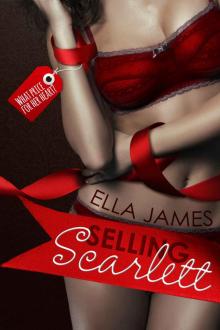 Selling Scarlett
Selling Scarlett Hansel, Part Four
Hansel, Part Four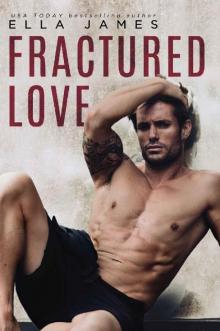 Fractured Love
Fractured Love Exalted
Exalted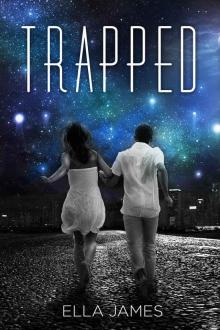 Trapped
Trapped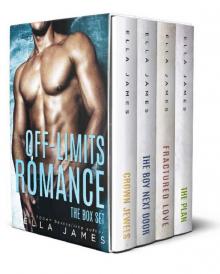 Off-Limits Box Set
Off-Limits Box Set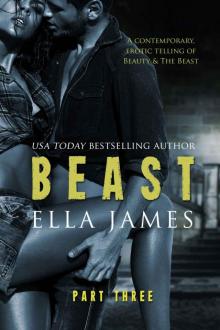 Beast, Part Three
Beast, Part Three Crown Jewels
Crown Jewels Red & Wolfe, Part II: An Erotic Fairy Tale
Red & Wolfe, Part II: An Erotic Fairy Tale Beast, Part One
Beast, Part One The Boy Next Door
The Boy Next Door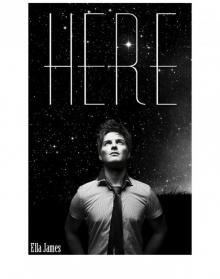 Here
Here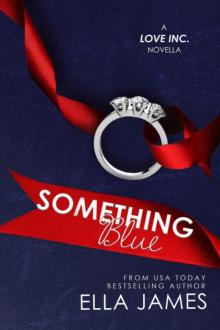 Something Blue
Something Blue Stolen
Stolen Sloth
Sloth Sexy Beast
Sexy Beast The Plan: A Standalone Off-Limits Romance
The Plan: A Standalone Off-Limits Romance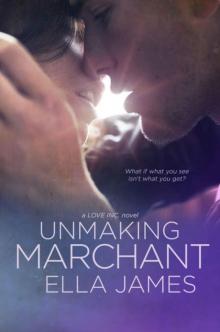 Unmaking Marchant
Unmaking Marchant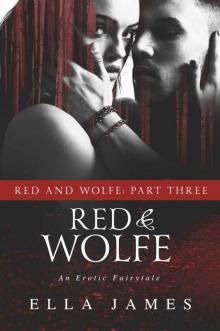 Red & Wolfe, Part III: An Erotic Fairy Tale
Red & Wolfe, Part III: An Erotic Fairy Tale Hansel, Part Two
Hansel, Part Two Beast, Part Four
Beast, Part Four Red & Wolfe, Part I: An Erotic Fairy Tale
Red & Wolfe, Part I: An Erotic Fairy Tale Hansel, Part One
Hansel, Part One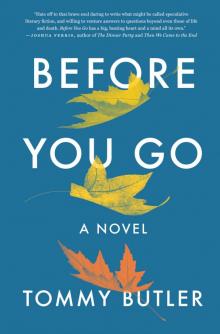 Before You Go
Before You Go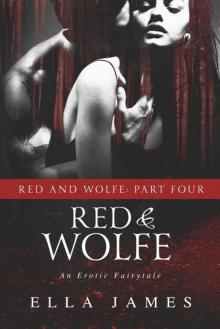 Red & Wolfe, Part Four
Red & Wolfe, Part Four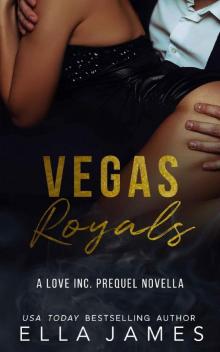 Vegas Royals: A Love Inc. Prequel
Vegas Royals: A Love Inc. Prequel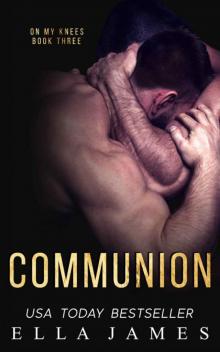 Communion (On My Knees Series Book 3)
Communion (On My Knees Series Book 3)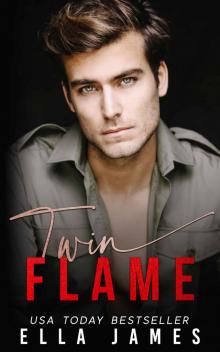 Twin Flame: A Dark Heart Prequel (Dark Heart Duet)
Twin Flame: A Dark Heart Prequel (Dark Heart Duet) Stained
Stained Sloth: A Standalone Forbidden Romance
Sloth: A Standalone Forbidden Romance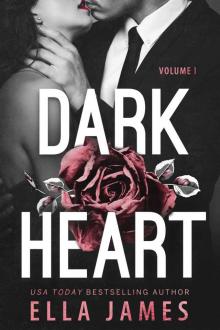 Dark Heart Volume 1: A Star-Crossed Mafia Romance (Dark Heart Duet)
Dark Heart Volume 1: A Star-Crossed Mafia Romance (Dark Heart Duet)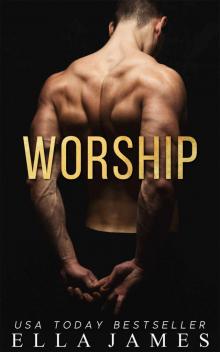 Worship (On My Knees Duet Book 1)
Worship (On My Knees Duet Book 1) Hate You Not: An Enemies to Lovers Romance
Hate You Not: An Enemies to Lovers Romance Taming Cross
Taming Cross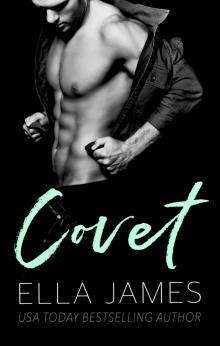 Covet : A Standalone Forbidden Romance
Covet : A Standalone Forbidden Romance Adore (On My Knees Duet Book 2)
Adore (On My Knees Duet Book 2)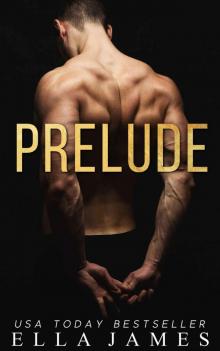 Prelude (On My Knees Duet)
Prelude (On My Knees Duet) My Heart for Yours: A Standalone Forbidden Romance
My Heart for Yours: A Standalone Forbidden Romance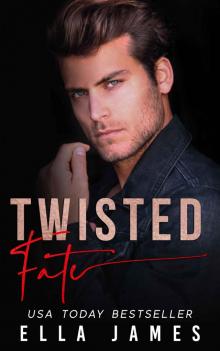 Twisted Fate: A Forbidden Romance
Twisted Fate: A Forbidden Romance